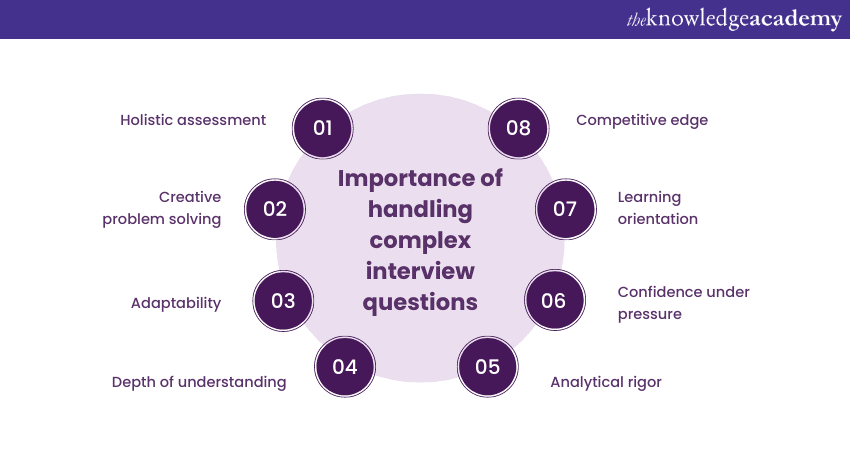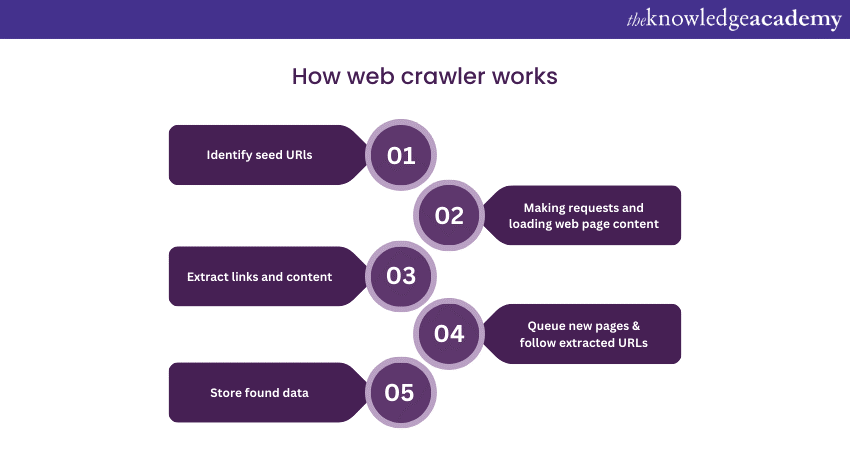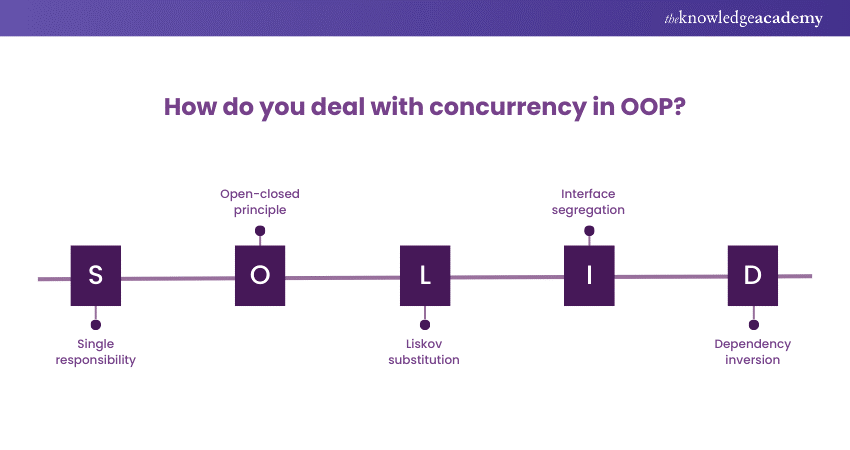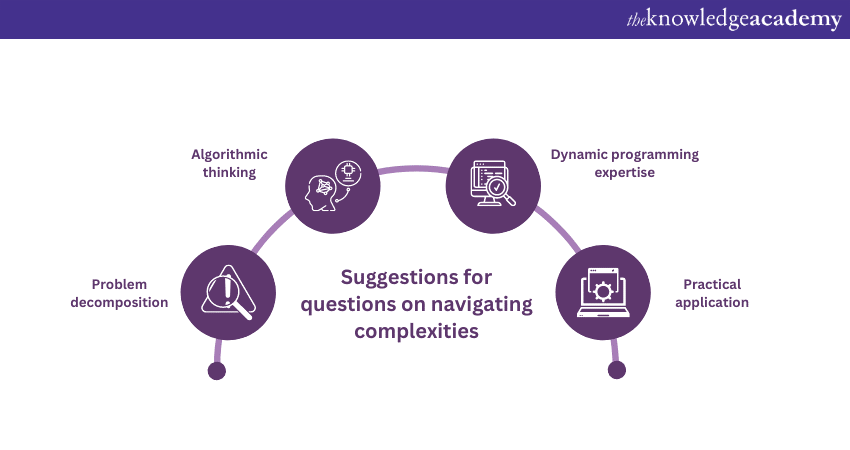We may not have the course you’re looking for. If you enquire or give us a call on + 1-866 272 8822 and speak to our training experts, we may still be able to help with your training requirements.
Training Outcomes Within Your Budget!
We ensure quality, budget-alignment, and timely delivery by our expert instructors.

Software Engineering has become the backbone of innovation and progress in today's fast-paced and rapidly evolving technological landscape. With Software powering everything from communication to commerce, the demand for skilled Software Engineers has reached unprecedented levels. As companies strive to create innovative products and services, the role of Software Engineers has grown more pivotal than ever before. To land a job in this role, you need to clear the Software Engineer Interview Questions.
According to Statista, there are 466,000 Software Engineers employed in the UK, making it one of the most attractive sectors to work in the country. Read this blog to learn about the top Software Engineer Interview Questions and answers, segregated on the basis of candidate’s understanding of databases, and more.
Table of Contents
1) The evolving landscape of Software Engineering interviews Questions
2) Importance of handling complex Interview Questions
3) Software Engineer Interview Questions on algorithmic prowess
4) Software Engineer Interview Questions on system design challenges
5) Software Engineer Interview Questions on Low-level proficiency
6) Software Engineer Interview Questions on Object-Oriented complexity
7) Software Engineer Interview Questions on database dexterity
8) Software Engineer Interview Questions on navigating complexities
9) Software Engineer Interview Questions on behavioural challenges
10) Conclusion
The evolving landscape of Software Engineering interviews Questions
The Software Engineer Interview Questions have evolved from a mere technical knowledge assessment to a comprehensive evaluation of problem-solving abilities, critical thinking skills, collaboration prowess, and adaptability. As a result, the questions posed in these interviews have become more intricate and multifaceted, designed to test a candidate's knowledge of programming languages and frameworks and gauge their ability to navigate real-world challenges.
Importance of handling complex Software Engineer Interview Questions

In a field where innovation thrives on complexity, the ability to tackle intricate challenges head-on is a crucial skill for Software Engineering. The importance of handling complex Interview Questions can be highlighted in the points below:
a) Holistic assessment: Complex Interview Questions go beyond evaluating rote technical knowledge. They provide a holistic evaluation of a candidate's problem-solving abilities, critical thinking skills, and ability to navigate unfamiliar territory. It ensures that selected candidates can excel in diverse real-world scenarios.
b) Creative problem-solving: Creative problem-solving is required to tackle intricate questions. Candidates must think creatively, explore unconventional approaches, and devise innovative solutions. This skill proves invaluable in addressing unique challenges during Software Development.
c) Adaptability: Complex questions mirror the dynamic nature of the Software Engineering field. Candidates who can confidently tackle such questions demonstrate adaptability – a trait vital in an industry where technologies, methodologies, and project requirements evolve rapidly.
d) Depth of understanding: Navigating complexity requires a deep understanding of underlying concepts. Candidates must dissect problems, recognise patterns, and make informed decisions. This depth of experience translates to writing efficient, maintainable, and optimised code.
e) Analytical rigor: Complex questions encourage analytical rigor. Candidates break down intricate problems into manageable components, analyse trade-offs, and select the best-suited approach. This analytical prowess extends beyond interviews, enhancing their overall contribution to Software Development.
f) Confidence under pressure: Successfully handling complex questions boosts a candidate's confidence. It prepares them to handle high-pressure situations in real-world projects, communicate complex ideas effectively, and thrive in collaborative team environments.
g) Learning orientation: Engaging with complex questions cultivates a learning-oriented mindset. Candidates become accustomed to embracing challenges, seeking knowledge, and continuously improving their skills. This attitude aligns with the fast-paced nature of Software Engineering.
h) Competitive edge: Mastering complex questions sets candidates apart from the competition. It displays their ability to grapple with intricate issues, making them attractive to employers seeking engineers who can contribute meaningfully from day one.
Software Engineer Interview Questions on Algorithmic prowess
Algorithmic challenges are a hallmark of Software Engineering Interview Questions. They are designed to assess a candidate's ability to devise efficient and elegant solutions to complex problems.
Algorithmic Software Engineer Interview Questions explore the core of computational thinking and require candidates to unravel intricate patterns, create optimised strategies, and demonstrate a deep understanding of data structures and algorithms. Here, we delve into the world of algorithmic prowess, breaking down some of the most demanding Software Engineer Interview Questions and suggestions are:
1) How do you reconstruct itinerary by exploring graph algorithms?
This question often revolves around Eulerian paths and cycles in directed graphs. Candidates must navigate through complex itineraries, considering destinations and connecting flights. Understanding Depth-First Search (DFS) and graph traversal techniques is essential to conquer this challenge. A well-structured DFS approach helps reconstruct itineraries and ensure each city is visited exactly once.
Ready to be a Systems Engineering expert? Join our Systems Engineering Training and unlock your full potential now!"
2) What is Maximum Subarray Sum Circular in Dynamic programming and Circular Arrays?
This question explores Circular Subarrays, requiring candidates to identify the maximum subarray sum considering circular elements. Dynamic programming techniques come to the forefront, as candidates need to calculate and compare cumulative sums efficiently. Breaking the problem into simpler sub-problems and reusing solutions is critical to solving this challenge.
3) How Heap-based solutions and spatial data help in calculating K closest points to origin?
Spatial data manipulation and heap-based solutions take centre stage in this question. Candidates must efficiently find the K closest points to the origin using techniques like the k-nearest neighbour algorithm. Mastering heap data structures aids in optimising the process, as it allows candidates to maintain a priority queue of the closest points. You can follow the below given suggestions in this regard:
a) Practice regularly: Consistent practice with algorithmic problems helps build intuition and familiarity with common patterns and approaches.
b) Understand time complexity: Deeply grasp the concept of time complexity to optimise solutions and identify potential bottlenecks.
c) Learn from others: Study solutions from the broader programming community to gain insights into alternative strategies and techniques.
d) Experiment and iterate: Be open to experimenting with different approaches and iterating on solutions to enhance efficiency.
Unlock the power of Agile Software Development Training – Join now and transform your approach to software projects with our comprehensive training!
Software Engineer Interview Questions on system design challenges
System design challenges in Software Engineer Interview Questions assess candidates' ability to architect scalable, efficient, and robust solutions to real-world problems. These challenges go beyond coding and explore the complexities of designing complex software systems that can handle high loads, ensure fault tolerance, and deliver a seamless User Experience. Let's explore some of the most demanding system design Software Engineer Interview Questions and gain insights into practical strategies for tackling them:
4) How do you design a scalable chat service by architecting a real-time communication platform?
This challenge often involves creating a distributed chat service capable of handling millions of users concurrently. Candidates must consider factors like message delivery, real-time synchronisation, and fault tolerance. Addressing these challenges requires deeply understanding distributed systems, message queues, and data consistency models.
5) How can you explore consistency and fault tolerance by building a distributed Key-value store?
Candidates must design a distributed key-value store that guarantees data consistency across nodes and sustains high availability despite node failures. This challenge demands expertise in distributed databases, replication strategies, and consensus algorithms such as Paxos or Raft.
6) How does a web crawler works?

Creating an efficient web crawler involves designing a system that can traverse the vast expanse of the internet while adhering to ethical considerations and minimising resource usage. Candidates must strategise URL fetching, manage crawling queues, and handle duplicate content intelligently. Candidates can follow the below suggestions to efficiently navigate the web landscape:
a) Scalability and performance: Understanding techniques to scale systems horizontally or vertically, optimising data storage, and ensuring responsiveness under load.
b) Data modelling: Designing effective data schemas, selecting appropriate databases, and ensuring data integrity and consistency.
c) Distributed systems: Mastering the intricacies of distributed architecture, including load balancing, data partitioning, and fault tolerance mechanisms.
d) Trade-offs and constraints: Making informed decisions while balancing trade-offs in areas like latency, throughput, storage, and cost.
Software Engineer Interview Questions on low-level proficiency
In Software Engineering, a solid grasp of low-level programming concepts marks a well-rounded and versatile engineer. To be proficient in low-level, you need to explore what is hidden by the high-level language simplifications to understand the inner workings of computer systems. Candidates who excel in low-level challenges display their ability to manipulate memory, optimise performance, and interact intimately with hardware. Let us explore some of the most intricate low-level Software Engineer Interview Questions for mastering them and uncover strategies for mastering them:
7) How do you implement a memory allocator to understand memory management?
This challenge requires candidates to design and implement a memory allocator akin to those found in programming languages or operating systems. Mastery of concepts like memory segmentation, virtual memory, and memory fragmentation is essential. Candidates must ensure efficient allocation and deallocation while avoiding issues like memory leaks or buffer overflows.
8) How does bit manipulation magic help solve complex problems using bitwise operations?
Bit manipulation questions often involve optimising algorithms or data storage using bitwise operators. Candidates tackle tasks like counting set bits, finding the single non-repeated element in an array, or implementing arithmetic operations without standard operators. Proficiency in bitwise operations, binary representation, and number theory is crucial.
9) How does understanding Grasping OS help craft a minimal operating system?
Candidates undertaking this challenge embark on the creation of a simple operating system. It encompasses understanding boot loaders, kernel initialisation, memory protection, and context switching. A deep dive into system architecture and hardware interaction is necessary to craft a functional minimal OS. Candidates can follow the below given suggestions in this regard:
a) Learn assembly language: Familiarity with assembly languages, like x86 or ARM, empowers candidates to comprehend machine instructions and perform low-level manipulations.
b) Understand computer architecture: Grasping concepts such as registers, caches, pipelines, and interrupts provide insight into system behaviour and optimisation opportunities.
c) Memory management techniques: Learning about memory allocation strategies, memory protection, and plans to prevent memory-related errors is essential.
d) Bit manipulation mastery: Gaining expertise in bitwise operations, understanding binary arithmetic, and applying these skills to various problem-solving scenarios.
Elevate your Software skills to the next level. Join our Software Design and Architecture Training today!
Software Engineer Interview Questions on Object-Oriented complexity
Object-Oriented Programming (OOP) is a cornerstone of modern Software Development, enabling Software Engineers to create modular, maintainable, and extensible codebases. The Software Engineer Interview Questions how well a candidate can design efficient and graceful solutions using Object-Oriented complexity. Mastering these challenges displays a candidate's proficiency in encapsulation, inheritance, polymorphism, and design patterns. Let us explore some of the most intricate OOP Software Engineer Interview Questions and uncover strategies for conquering them:
10) How do you apply various design patterns effectively?
This challenge involves selecting and implementing appropriate design patterns to solve complex Software Design problems. Candidates must demonstrate a deep understanding of patterns like Singleton, Observer, Factory, and more. Applying design patterns requires recognising the problem context and adapting patterns to fit seamlessly within the more extensive architecture. Candidates should recognise recurring patterns in Software Design and leverage these patterns to improve code maintainability, scalability, and extensibility.
11) How does extending class hierarchies help manage intricate inheritance structures?
Candidates may face scenarios needing to extend or modify existing class hierarchies while preserving code integrity. This challenge tests a candidate's ability to navigate complex inheritance relationships, understand the "is-a" and "has-a" relationships, and implement changes without introducing unintended side effects. Effective management of class hierarchies involves careful consideration of the Liskov Substitution Principle and making design choices that support future evolution without causing ripple effects through the codebase.
12) How do you deal with concurrency in OOP?

Tackling concurrent access to shared data is a hallmark of modern Software Development. Candidates must design and implement thread-safe data structures, ensuring data integrity and preventing race conditions. Proficiency in techniques like locks, semaphores, and atomic operations is vital. Candidates should understand the technical aspects of concurrency and be adept at applying these concepts to real-world scenarios to ensure code correctness and performance. The following suggestions can be useful in this regard:
a) Deepen design pattern knowledge: Understand a wide range of design patterns, their intent, and scenarios where they are most effective.
b) Refine inheritance skills: Master the principles of inheritance, composition, and interface design to create flexible and adaptable class hierarchies.
c) Concurrency expertise: Learn techniques for handling concurrency, understanding thread safety, and applying synchronisation mechanisms.
d) SOLID principles: Embrace the SOLID principles (Single Responsibility, Open/Closed, Liskov Substitution, Interface Segregation, Dependency Inversion) to guide clean and maintainable design.
Unlock the mastery of Software Development through our comprehensive Software Development Lifecycle Training – embark on a journey to build efficient, high-quality Software solutions today!
Software Engineer Interview Questions on database dexterity
In Software Engineering, databases form the backbone of data storage, retrieval, and management. Database dexterity in Software Engineer Interview Questions explores candidates' ability to design efficient and robust data structures, optimise query performance, and ensure data integrity. Proficiency in database concepts is crucial for creating scalable and reliable systems. Some of the most intricate database-related questions and suggestions are:
13) How does SQL Query optimisation help enhance the efficiency of database queries?
This challenge involves optimising SQL queries to retrieve and manipulate data from large databases efficiently. Candidates must understand query execution plans, indexing strategies, and database normalisation. Mastering these concepts allows candidates to fine-tune queries, reduce execution times, and improve overall system performance.
14) How schema design for a social network helps create a robust and scalable data model?
Designing a database schema for a social network involves modelling user relationships, posts, comments, and interactions. Candidates must balance normalisation and denormalisation, ensuring data integrity while optimising query complexity. Understanding relational databases and NoSQL options is essential for crafting an effective schema.
15) How Atomicity, Consistency, Isolation, and Durability (ACID) transactions help understand database transaction properties?
Candidates may need to explain the properties of ACID transactions. In-depth knowledge of how transactions ensure data integrity, manage concurrent access, and maintain consistency is essential. Candidates should also understand isolation levels and how they affect concurrency control. The following suggestions can help:
a) Query optimisation techniques: Learn strategies for structuring queries, utilising indexes, and minimising data scans to optimise query performance.
b) Data modelling mastery: Understand different data modelling techniques, including normalisation and denormalisation, and choose the right approach for specific use cases.
c) Concurrency control: Grasp concepts of locking, isolation levels, and transactions to handle concurrent data access without conflicts or inconsistencies.
d) Consistency and replication: Familiarise yourself with strategies for maintaining data consistency across distributed systems and implementing replication for fault tolerance.
Software Engineer Interview Questions on Navigating complexities
In Software Engineering, navigating intricate challenges is a hallmark of a skilled and adaptable engineer. Navigating complexities in Software Engineer Interview Questions involves unravelling perplexing problems that demand creative thinking, analytical prowess, and a deep understanding of fundamental concepts. These challenges reflect the multifaceted nature of real-world Software Development and assess a candidate's aptitude for crafting innovative solutions. Some of the most perplexing Software Engineer Interview Questions for a Software Developer career pathEngineer that test a candidate's ability to navigate complexities are:
16) Please solve the two escaping buckets - a puzzling water pouring problem.
In this challenge, candidates face a scenario where they must use two buckets of different capacities to accurately measure a specific volume of water. To achieve the desired outcome, candidates need to devise an algorithm that leverages the capabilities of the buckets. Successful resolution demands a combination of mathematical reasoning, problem decomposition, and creative problem-solving.
17) Please solve the elusive coin combination, a dynamic programming and combinatorial conundrum.
Candidates might encounter a scenario where they need to calculate the number of ways to make change for a given amount using a set of coin denominations. This question delves into dynamic programming principles, requiring candidates to break down the problem into overlapping sub-problems and iteratively find solutions. Mastery of dynamic programming techniques is crucial to efficiently solving such problems.
Unlock the potential of Java Programming And Software engineering Fundamental Training – Join now to transform your coding skills!
18) How do you apply data structures in real-world scenarios by simulating an LRU cache?

This challenge centres around implementing a Least Recently Used (LRU) cache, a fundamental data structure systems use to manage data access efficiently. Candidates must understand cache eviction policies, data structures like linked lists, and methods to track recently used items. The solution highlights a candidate's ability to translate theoretical concepts into practical implementations. The following suggestions can help in this regard:
a) Problem decomposition: Break down intricate problems into manageable components, identifying patterns and relationships to formulate an effective solution strategy.
b) Algorithmic thinking: Develop a keen algorithmic mindset to explore multiple approaches, assess their efficiency, and choose the most suitable context.
c) Dynamic programming expertise: Grasp dynamic programming principles, recognising overlapping sub-problems and optimal substructure to solve complex challenges iteratively.
d) Practical application: Bridge the gap between theoretical knowledge and real-world scenarios by translating abstract concepts into functional solutions.
Software Engineer Interview Questions on behavioural challenges
Software Engineer Interview Questions evaluate technical prowess and gauge a candidate's soft skills, teamwork, and ability to handle real-world scenarios. Behavioural challenges provide insight into a candidate's interpersonal skills, ethical decision-making, conflict-resolution abilities, and adaptability. Excelling in these challenges demonstrates a candidate's readiness to contribute effectively to a collaborative and dynamic Software Engineering environment. Let us explore some of the thought-provoking behavioural Software Engineer Interview Questions:
19) How do you handle ethical dilemmas addressing moral and ethical decisions?
This challenge might present candidates with ethical scenarios, requiring them to navigate complex decisions with moral implications. Candidates must weigh factors like user privacy, data security, and societal impact. Demonstrating ethical reasoning, empathy, and an understanding of the broader implications of their decisions highlights a candidate's responsibility and integrity.
20) Describe about a situation of failed project recovery, narrating a challenging work situation.
Candidates could recount an instance where a project encountered setbacks or challenges, emphasising effective communication and storytelling as they elucidate the situation, their role, the measures taken to tackle issues, and the lessons assimilated. This inquiry underscores a candidate's capacity to contemplate failures, adjust to adversity, and play a constructive role in project recovery.
21) How do you collaborate with others to resolve a conflict and demonstrate teamwork and conflict management?
This challenge assesses a candidate's capacity to navigate interpersonal conflicts within a team environment. Candidates must describe how they approached and resolved conflicts, emphasising effective communication, active listening, and compromise. The ability to foster collaboration and maintain a harmonious team dynamic is paramount. The following situations can help in this regard:
a) Practice effective communication: Hone communication skills to articulate thoughts clearly, concisely, and empathetically. Effective communication fosters understanding and promotes healthy interactions.
b) Develop ethical awareness: Familiarise yourself with ethical considerations in Software Development and cultivate a framework for making morally sound decisions in complex scenarios.
c) Cultivate adaptability: Showcase instances of adapting to change, learning from failures, and maintaining a growth mindset. Highlight your ability to handle unforeseen challenges with resilience.
d) Teamwork and conflict management: Emphasise collaborative problem-solving experiences, conflict resolution, and your role in fostering a positive team environment.
22) What is the main difference between a computer program and a computer software?
During the interview, the candidate should provide a clear distinction between computer software and computer programs. They can elucidate that a computer program is a set of specific instructions written in a programming language to accomplish particular tasks. This could range from simple scripts to complex applications.
On the other hand, computer software is a broader term encompassing not only the program itself but also the documentation and data associated with it. In essence, a computer program is a vital component of computer software, which represents a comprehensive package facilitating the computer's execution of diverse tasks.
23) What programming languages are you proficient in?
In response to the question about programming languages, the candidate can adeptly communicate their proficiency. They should mention being well-versed in languages such as Python, JavaScript, and Java, showcasing versatility across different programming paradigms.
The candidate can emphasise their adaptability to diverse languages, underlining a robust foundation in algorithmic thinking and practical problem-solving skills. This proficiency enables them to contribute meaningfully to a wide range of projects, demonstrating a comprehensive and adaptable skill set in the programming domain.
Conclusion
We hope you enjoyed reading this blog on Software Engineer Interview Questions and understood how you can answer them easily. Candidates must demonstrate their versatility and problem-solving prowess through algorithmic prowess, system design finesse, low-level proficiency, and more. Embrace learning, practice, and adaptability to emerge as a confident and booming Software Engineer in today's competitive landscape.
Elevate your skills with comprehensive Software Engineering training and unlock endless opportunities in the world of technology.
Frequently Asked Questions

Expect questions on algorithms, data structures, coding exercises, problem-solving, system design, and behavioural inquiries. Technical proficiency, problem-solving skills, and communication abilities are commonly assessed.

Focus on algorithms (sorting, searching), data structures (arrays, linked lists), system design principles, databases, coding languages, problem-solving, and behavioural scenarios. Stay updated on industry trends, and practice coding challenges to enhance your problem-solving skills.

The Knowledge Academy takes global learning to new heights, offering over 30,000 online courses across 490+ locations in 220 countries. This expansive reach ensures accessibility and convenience for learners worldwide.
Alongside our diverse Online Course Catalogue, encompassing 17 major categories, we go the extra mile by providing a plethora of free educational Online Resources like News updates, Blogs, videos, webinars, and Interview Questions. Tailoring learning experiences further, professionals can maximise value with customisable Course Bundles of TKA.

The Knowledge Academy’s Knowledge Pass, a prepaid voucher, adds another layer of flexibility, allowing course bookings over a 12-month period. Join us on a journey where education knows no bounds.

The Knowledge Academy offers various Software Engineering Courses including Software Development Lifecycle Training, Software Design and Architecture etc. These courses cater to different skill levels, providing comprehensive insights into Software Engineering.
Our Programming and DevOps blogs cover a range of topics related to Software Engineering, offering valuable resources, best practices, and industry insights. Whether you are a beginner or looking to advance your Software Engineering expertise, The Knowledge Academy's diverse courses and informative blogs have you covered.







 Top Rated Course
Top Rated Course




 If you wish to make any changes to your course, please
If you wish to make any changes to your course, please


